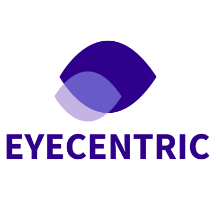Today, atherosclerotic cardiovascular disease (ASCVD) is the leading cause of morbidity and mortality worldwide. The World Health Organization global estimates that over 15 million people die from ASCVD every year, accounting for 85% of global cardiovascular deaths. Worryingly, the Malaysian ASCVD patient are on average ten years younger than those in advanced countries, with 25% of cases being below the age of 50.
A key contributor to ASCVD is a condition known as hyperlipidaemia (excessive lipids in the blood), or it’s more common term high cholesterol. When uncontrolled, high cholesterol levels can cause cardiovascular problems such as chest pain or heart attacks.
High cholesterol is a 'symptomless' and invisible condition. Many of us don’t even realise it. No matter how fit and healthy you feel, it is a good idea to find out your cholesterol numbers. As a general principle, it is advised to maintain an ideal LDL-c level range between 1.4 - 2.6mmol/L based on your risk level.

Dr Yew Kuan Leong, Consultant Cardiologist at Bukit Tinggi Medical Centre
What is cholesterol?
Cholesterol is a waxy substance that is found in the body’s cells. Cholesterol comes in two forms. Low-density lipoprotein cholesterol (LDL-C), also known as bad cholesterol and high-density lipoprotein cholesterol (HDL-C), and has several useful functions, including helping to build cells and produce hormones.
A less commonly known fact is that the liver produces 70-80% of the body’s cholesterol, while the remainder comes from diet, primarily from the consumption of animal products.
The term high cholesterol is often used to describe a condition where too much LDL-C circulating in the blood may lead to the clogging-up of arteries, which in turn, may increase the risk of heart disease or stroke.
Malaysians often assume that embracing a healthy lifestyle alone can keep their cholesterol levels in check and prevent heart disease. While eating healthy and exercising regularly are always important to preserving one’s general health, a more comprehensive approach is required when it comes to managing cholesterol levels and lowering the risk of cardiovascular disease.
Mitigating the risk of heart disease
When it comes to managing cholesterol, physicians often categorize a patient’s risk factors into modifiable and non-modifiable.
Modifiable risk factors are those that allow a person to reduce or control the risk of developing cardiovascular disease. These include making behavioural or lifestyle changes such as eating healthier, exercising more and quit smoking.

Non-modifiable risk factors are those that cannot be changed and it is out of one’s control. These include age, gender, race and genetics. If a person has family members who have heart disease or high cholesterol, it is quite likely that the person may be predisposed to developing the same. Familial hypercholesterolemia (FH) a genetic disorder that affects 1 in 250 people, can increase one’s likelihood of having coronary heart disease at a young age. FH is caused by an inherited mutated gene that affects the way the body regulates and removes cholesterol from the blood.
That is why, even if you are not overweight, highly active and are extremely cautious of what you eat, you can still be predisposed to having high cholesterol that can lead to ASCVD.
Being pro-active is key to prevention
A pro-active prevention mindset is a must to mitigate the risk of ASCVD.
The step to take is to get educated and informed. Misperception of the disease is one of the main reasons for the high prevalence of ASCVD in Malaysia. Do be mindful that your information comes from a credible source.
Checking tabs on your cholesterol levels on a regular basis is ideal as this disease is ‘symptomless’. Most healthy adults should have their cholesterol checked every 4 to 6 years. Some people, such as people who have heart disease, diabetes, or a family history of high cholesterol, need to get their cholesterol checked more often.

If you have high cholesterol or hyperlipidaemia, proactive and holistic management it is critical. It is important to note that cholesterol needs to be treated to target. Positive lifestyle and behaviour changes combined with medication have been proven effective. There are also innovative therapies that can reduce LDL-C levels both effectively and conveniently and have been shown to be successful in decreasing the risk of cardiovascular events. However, it is just as important that medication must be taken as per doctor’s advice as lack of follow-through or ‘self-determined’ medication may have negative consequences.
If you want to mitigate your risk of ASCVD now, talk to your doctor today.
Published: Global Health Asia-Pacific
Find more about Dr Yew Kuan Leong: https://bukittinggimedicalcentre.com/doctor-info/dr-yew-kuan-leong





